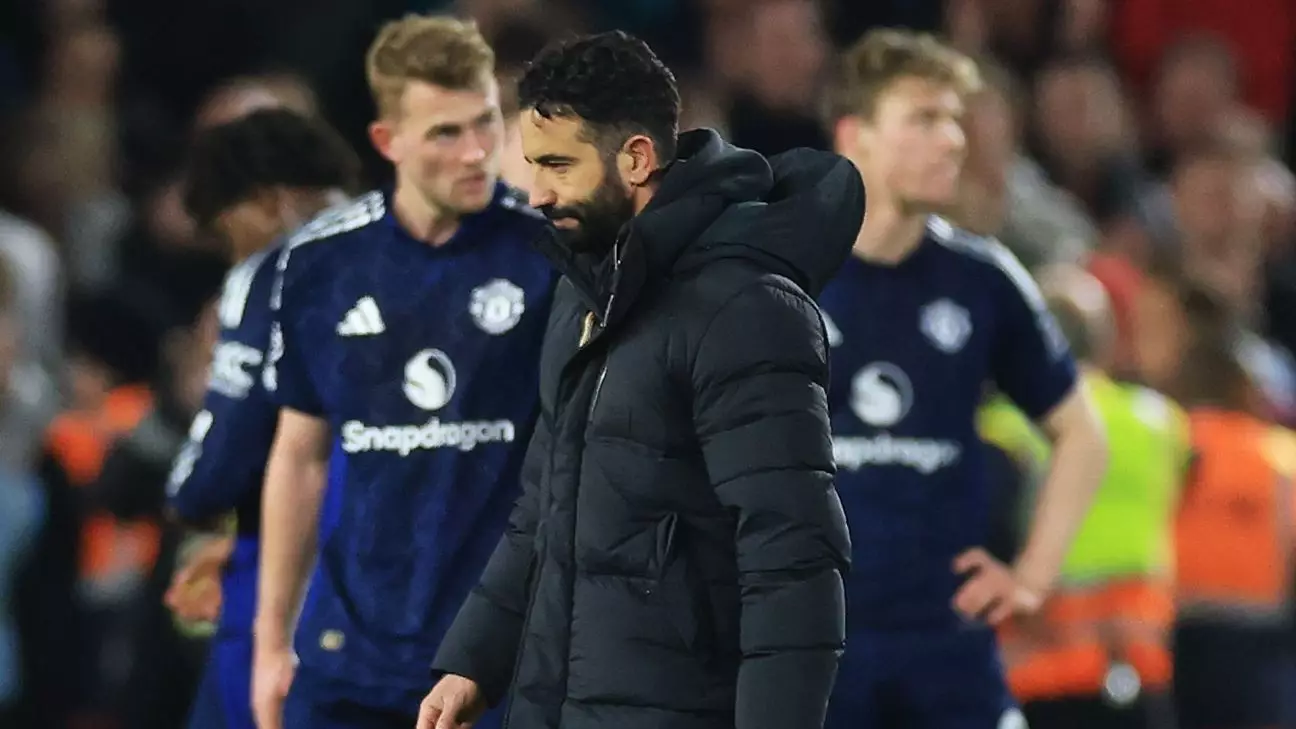When Ruben Amorim took on the role of Manchester United’s manager, he stepped into a role steeped in high expectations and even higher pressure. Despite the storied legacy of the club, Amorim’s tenure has been characterized more by struggles than successes. Following yet another disappointing defeat at Nottingham Forest, with a scoreline that betrays United’s deeply rooted problems, it has become painfully clear that time is not a luxury he possesses. As Amorim himself highlighted, “In Manchester United, you don’t have the time.” This statement underscores a staggering reality; in football’s elite tier, especially in a club with such a rich history, immediate results are crucial for survival.
Statistical Shadows Over Performance
The statistics tell a grim tale for Amorim and his squad. With Tuesday’s loss marking their 13th defeat this season, they are perilously close to matching their all-time record of 14 defeats in a single Premier League campaign. This alarming trend leaves the team languishing in 13th place, flashing warning signs that might soon force ownership and management to reassess their faith in Amorim’s capabilities. What’s more troubling is the pattern that emerges with each passing game; despite controlling possession, the final product remains glaringly absent. When a manager professes that his players are “trying,” it feels like a cover for underlying issues that run deeper than effort or intent.
To Blame or Not to Blame: The Garnacho Dilemma
One player who has found himself under the microscope is Alejandro Garnacho. The young forward has been a focal point of discussions around missed opportunities, with six of United’s 24 attempts at goal attributed to him—yet very few tested Nottingham’s goalkeeper, Matz Sels. While Amorim defends Garnacho’s efforts, arguing that the young talent is “making everything” possible, one must wonder if clinging to effort without results is an effective strategy. At this elite level, the pressure to convert chances into goals is not just an expectation; it’s a necessity. The questions become: How long can a manager persist with unproductive players? And can the current strategy be justified when victories remain elusive?
Future Trajectories: A Looming Decision
The heart of Amorim’s predicament lies in the transition between potential and performance. While he acknowledges that some players are not meeting their goals, he also emphasizes that every player must contribute defensively. However, this raises another question: can a team genuinely succeed if individual brilliance is overshadowed by collective inadequacies? As time slips away and the pressure mounts, United must confront a stark choice: continue backing Amorim in hopes that his vision materializes, or consider a shift in leadership to inject fresh ideas and tactics.
The challenges are immense, and for every match played, the trail of defeats adds weight to a manager’s proverbial sword of Damocles. As Manchester United navigates through the tempest of their current season, every decision made will be critical. Time may not be on Amorim’s side, but it’s the decisions made that will ultimately determine whether he can turn the tide in favor of this historically prestigious club.


Leave a Reply